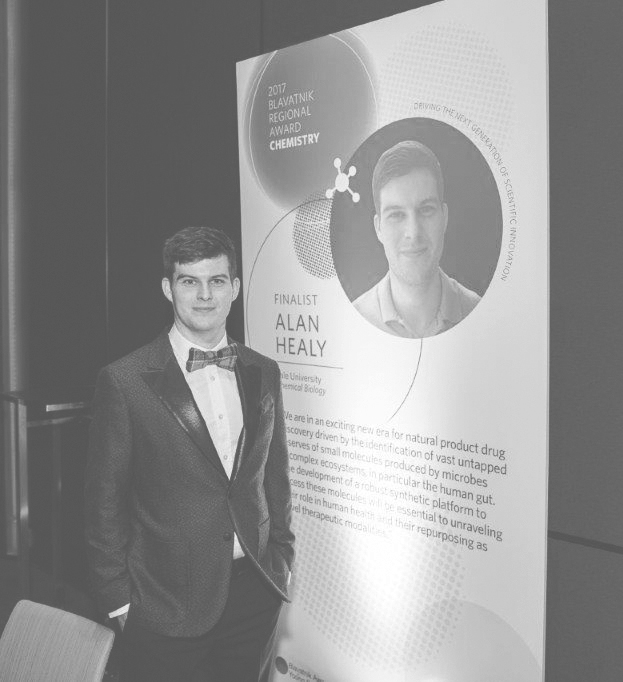
Alan Healy, a postdoctoral researcher at Yale, was on Oct. 12 named a finalist in the 2017 Blavatnik Regional Awards for Young Scientists.
The awards recognize the work of postdoctoral researchers from New York, New Jersey and Connecticut in the fields of life sciences, chemistry, and physical sciences and engineering. Each of the six finalists received $10,000 and was invited to attend a gala in New York City on Nov. 6.
Healy arrived at Yale in 2015 and currently holds a joint position in both the Department of Chemistry and West Campus’s Chemical Biology Institute. Healy’s research focuses on how bacteria in the gut can lead to cancer.
“The gut is an incredibly complex environment,” Healy said. “It is known that lifestyle changes, such as smoking, changes in diet or stress have a huge impact on the composition of your gut bacteria, but how that change in composition can lead to disease is not very well known.”
Healy has spent the past few years working on a project jointly run by the labs of two chemistry professors, Seth Herzon and Jason Crawford. The researchers study a strain of E. coli that produces a small toxic molecule linked to the development of colorectal cancer, Herzon said.
Despite evidence that such a toxin existed, no one had previously been able to identify its structure. The molecule was too reactive to isolate in its natural form, Crawford said, so the researchers decided to synthesize an approximation of it in the lab instead. According to Healy, this strategy was very unconventional and had not been attempted before with this particular molecule.
“Generally in our field, chemists only synthesize a natural product when that product is known or recognized,” Healy said. “Without the structure being known, you are technically taking on something very risky. But by taking on that risk we were able to learn a huge amount about how the toxin was made and how it functions biologically.”
The team now has built up an understanding of the core structure of the toxin, Healy said, adding that the award was in some ways a validation of the risks the researchers took. He added that he hopes that, by learning about the toxin and how it operates, the team can create new anti-cancer therapies to selectively target it.
Healy’s co-researchers praised his work ethic and resilience. According to Crawford, whenever Healy runs into problems in the lab, he immediately comes up with several new strategies to address them.
“He is an absolute delight to work with,” Crawford said. “And he deserves the credit for being a real nucleus of this project.”
Herzon noted that Healy has been very productive in his short time at Yale and that the team has submitted his name for consideration for other awards, as well.
In the future, Healy hopes to develop his own research group that will examine how other toxins in the microbiome impact biological processes.
The Blavatnik Family Foundation founded the Blavatnik Awards for Young Scientists in 2007.
Maya Chandra | maya.chandra@yale.edu







